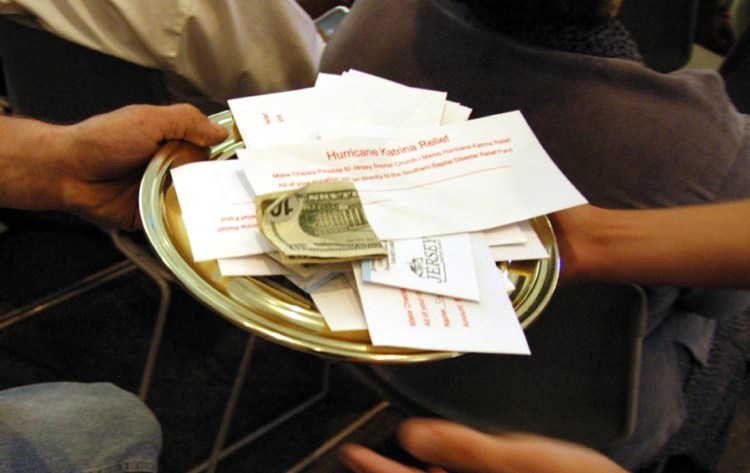WASHINGTON — Normally, members of Congress would have no problem working together to protect houses of worship from having to pay taxes, especially in an election year when both parties want to earn the faith community’s vote.
But in an era of pervasive partisan politics, not even that is a guarantee.
Some Republicans do want to tweak a portion of their 2017 tax bill that will now force nonprofits, including churches, to pay a 21 percent tax on the value of certain employee benefits. But most others downplay the problem or deny it needs to be addressed.
Assistant House Minority Leader Jim Clyburn of South Carolina is rallying Democrats around new legislation to repeal the provision.
But he can’t do it without help from Republicans, and calling their tax bill the “GOP tax scam” isn’t going to win over lawmakers who are fiercely protective of this congressional session’s biggest legislative achievement.
“(Democrats and Republicans) are describing the problem in very different ways,” said Galen Carey, vice president of government relations for the National Association of Evangelicals. “One side is saying ‘this is an oversight,’ the other is calling it Republicans’ war on religion – overheated rhetoric probably won’t help us get a solution.”
Short of legislative action, a public relations nightmare could be awaiting lawmakers who voted for the tax bill back home.
“When you stir up 100,000 houses of worship, and then hundreds of thousands of nonprofits on top of that, you have a pretty mighty force that is going to get attention on this issue,” said Dan Busby, president of the Evangelical Council for Fiscal Accountability.
Tucked away in the new tax law Republicans passed late last year with no Democratic support is a provision slapping certain nonprofits and charities, including houses of worship, with a 21 percent tax on the value of some employee benefits.
The expectation is the tax would relate to parking spaces and public transit passes. But those affected by the provision are genuinely unsure what exactly would qualify as a taxable expense because they still haven’t received official guidance from the Treasury Department.
The new tax on the value of employee benefits means that many institutions are going to have to prepare tax forms for the very first time – a convoluted and potentially costly exercise.
“Most churches do not have the sophistication that’s necessary to deal with the tax code,” Clyburn told McClatchy. “Small churches that exist in communities I represent – don’t operate as businesses.”
Churches also help pay for transportation expenses for employees. If institutions had to pay a tax on providing these perks, they might rescind them, Clyburn suggested.
The new requirement has since caught many off guard, even members of Congress.
“Had we had hearings, I can assure you I would have been testifying or screaming,” said Rep. Emanuel Cleaver, D-Mo., a United Methodist pastor.
Clyburn’s bill has 31 co-sponsors, including Cleaver and Veasey. All are Democrats and predominantly fellow members of the Congressional Black Caucus who tend to have strong ties to churches.
Send questions/comments to the editors.



Success. Please wait for the page to reload. If the page does not reload within 5 seconds, please refresh the page.
Enter your email and password to access comments.
Hi, to comment on stories you must . This profile is in addition to your subscription and website login.
Already have a commenting profile? .
Invalid username/password.
Please check your email to confirm and complete your registration.
Only subscribers are eligible to post comments. Please subscribe or login first for digital access. Here’s why.
Use the form below to reset your password. When you've submitted your account email, we will send an email with a reset code.